While this isn’t as far north as Scotland goes, it’s as far as we explored in The Highlands (for now!).
Just outside Aberfeldy is a Highland Safari company with a red deer center where you can learn about the red deer and feed them. Sunday after the festival, we made a trip out to see them before we left Aberfeldy. Turns out, the bus that goes to the Highland Safari doesn’t run on Sundays. Oh, we would soon find out (more) about transportation on a Sunday in small towns…
Being only a bit over 3 miles away, this turned out to be the best opportunity for us to breathe in and enjoy these beautiful Highlands.
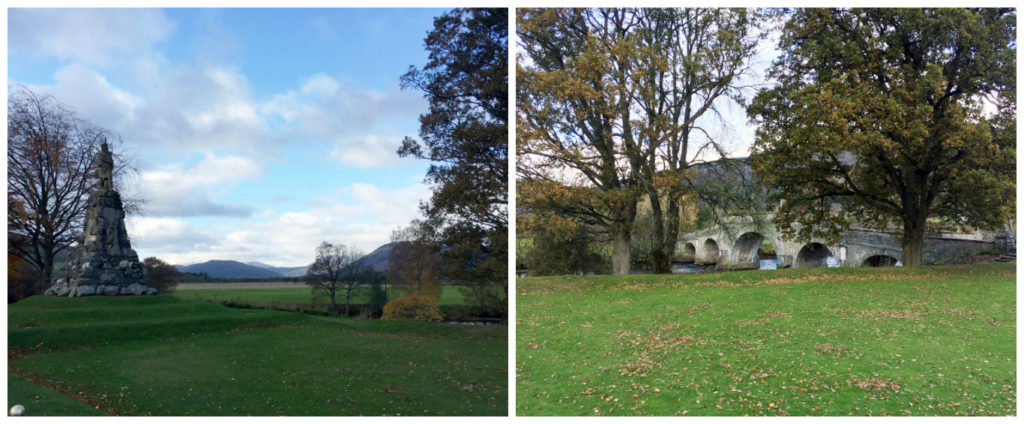
There’s a lovely walkway for a mile or so, maintained by the Scottish government to encourage people to get outside and stay active. As if the scenery isn’t enough!
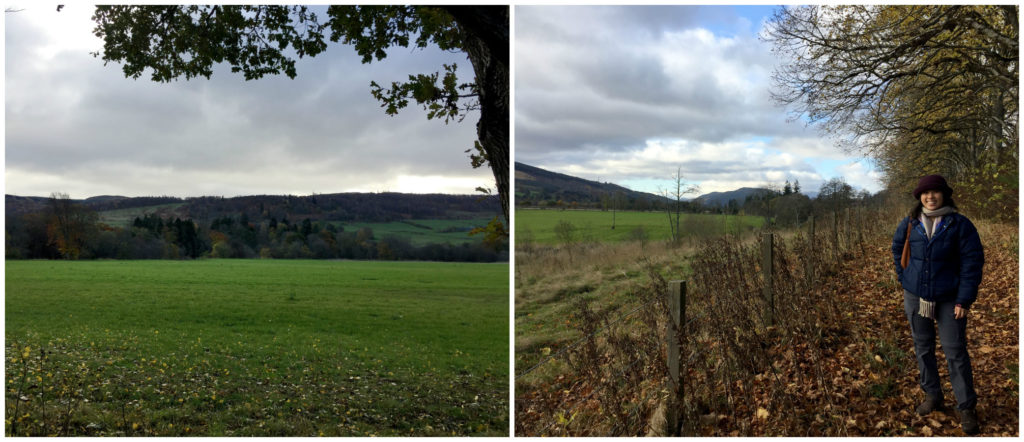
Every blink opened up to a stunning view, in ALL directions.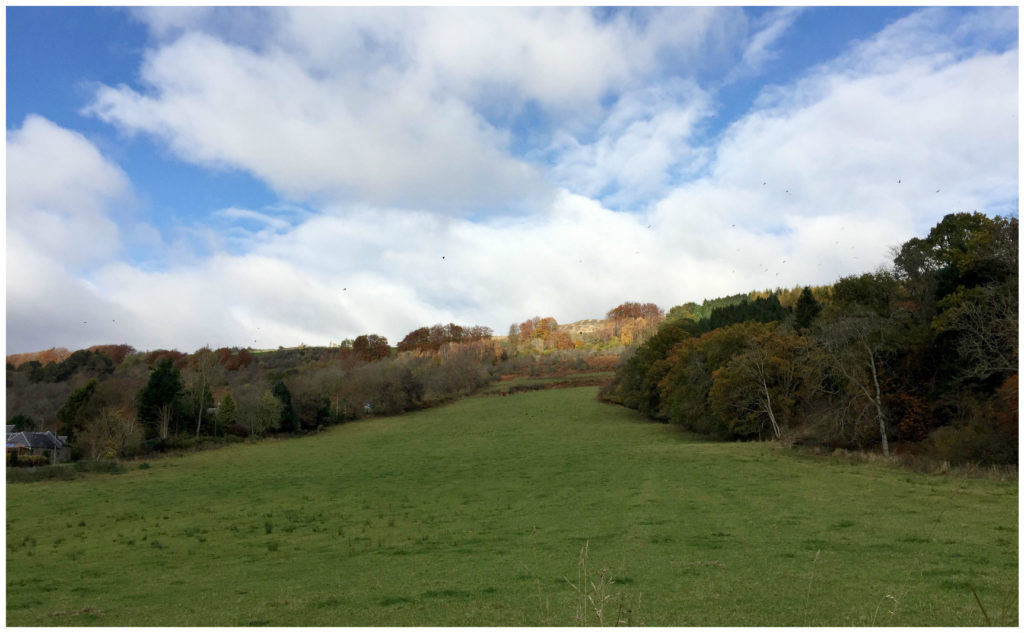
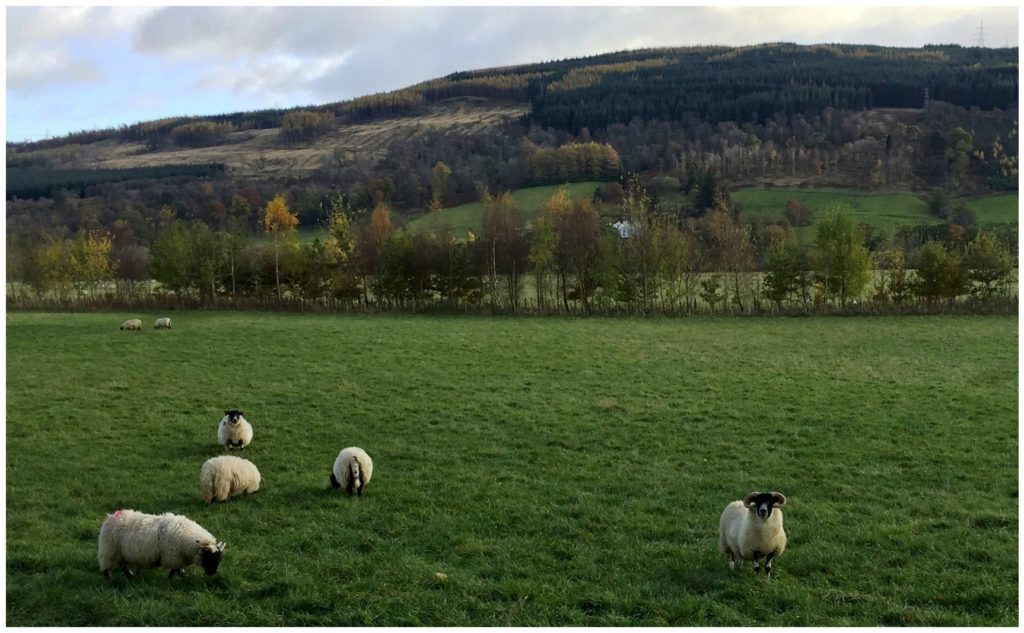
In our hour walk just outside of town, we still managed to walk by a castle, a church, B&Bs, and another town even tinier than Aberfeldy.
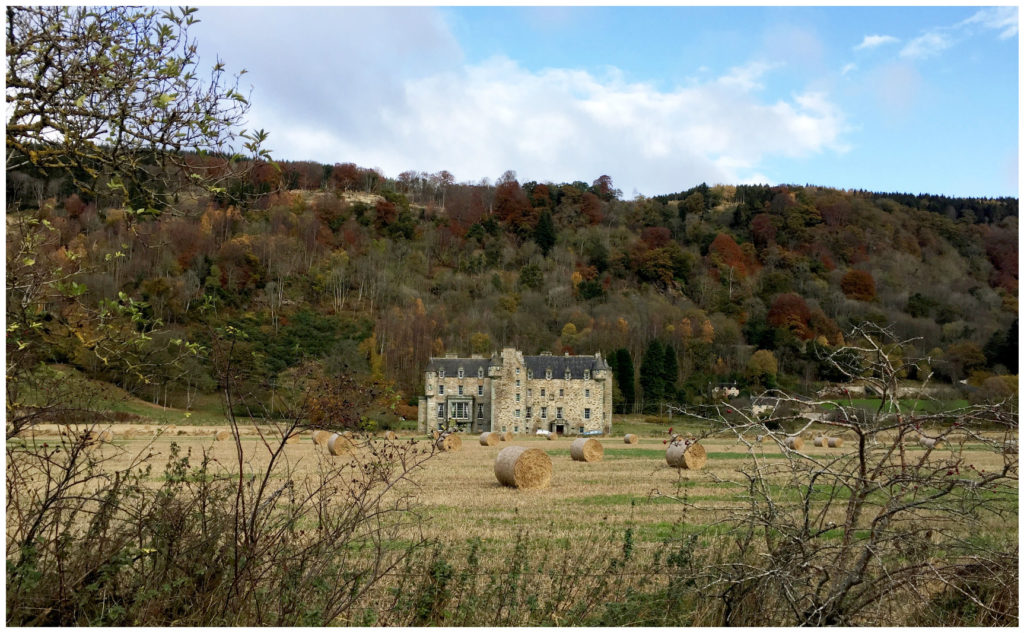
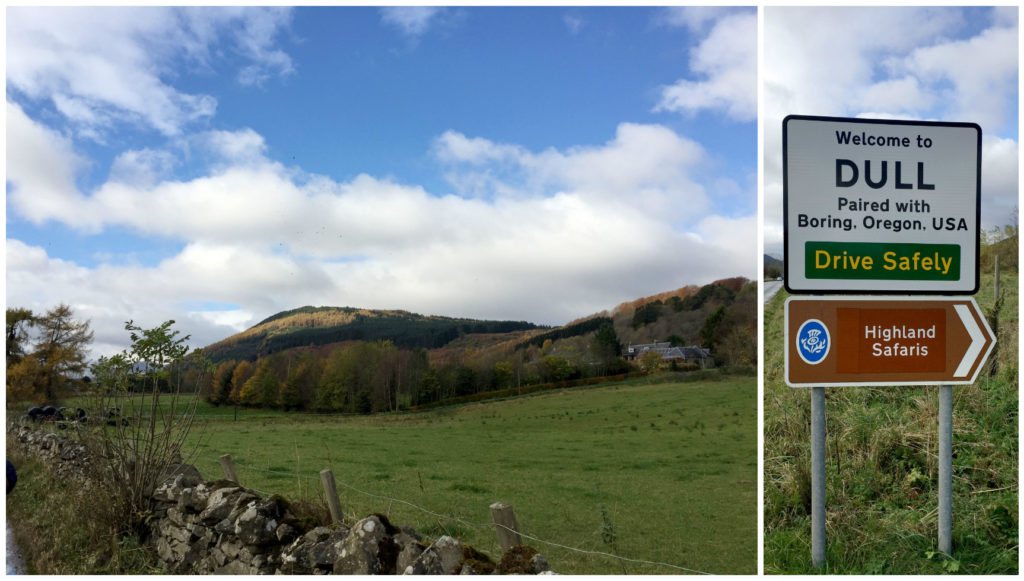
Before we knew it, we were at the Highland Safari Centre.
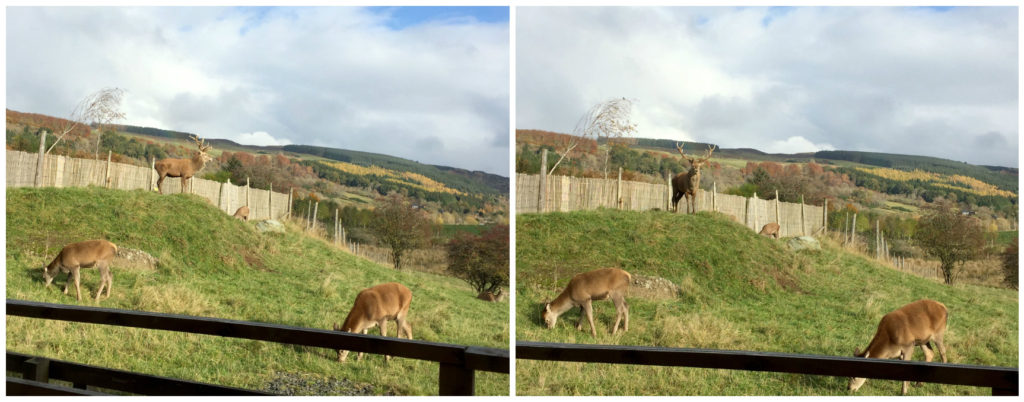
Did you know that red deer are the largest mammal in the UK? Or that a stag’s antlers fall off every year??
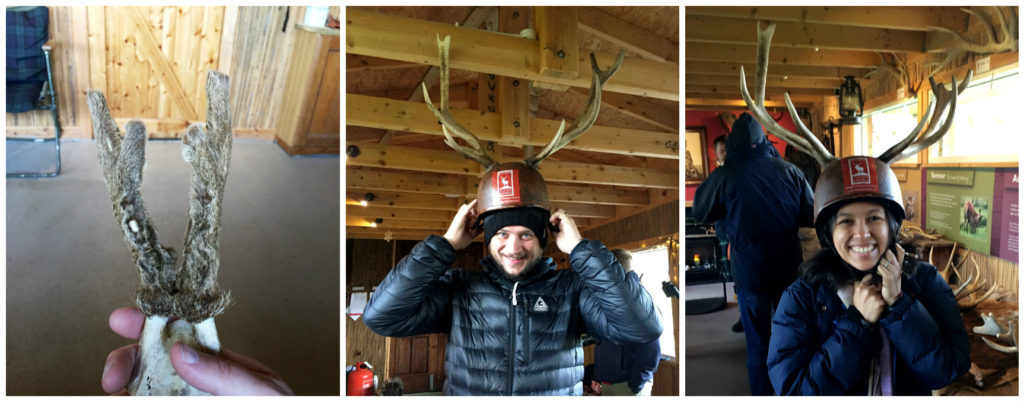
The antlers grow over a period of 6-8 months. A full set of antlers, in that short of a time—this means the antlers of an adult stag grow at a rate of over an inch a day! The velvet that covers the bone provides the blood for all this growth. When the antlers are fully grown, the velvet will fall off (or the stag will rub it off on trees and such).
These beautiful antlers are not for piercing other stags, but as a “gentleman’s weapon” they’re for interlocking with another stag as they wrestle and push each other away from the herd. The prize of course, is to be the stag of a herd, claiming all the hinds (females).
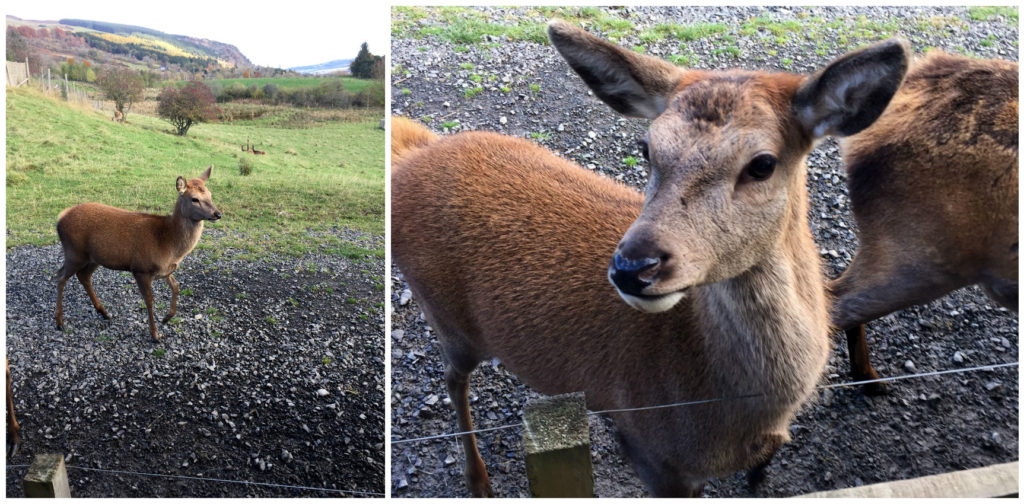
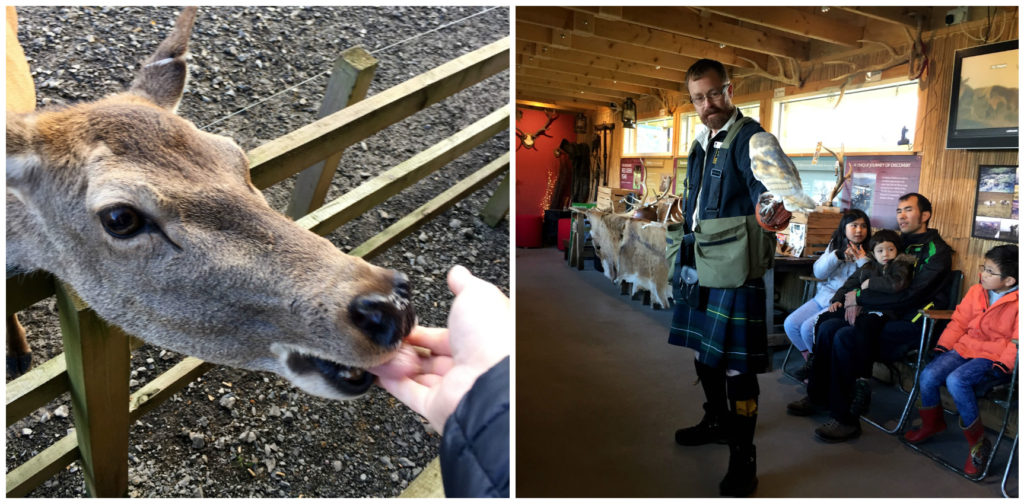
These are the Highlands, so despite what this man is wearing (yes, full-on traditional Scottish kilt-wear), it is FREEZING. He came back from a Highland excursion to show us around and said the hills were covered in snow! He really does have a knife in his left sock (not visible in picture, but I saw its gleam in person).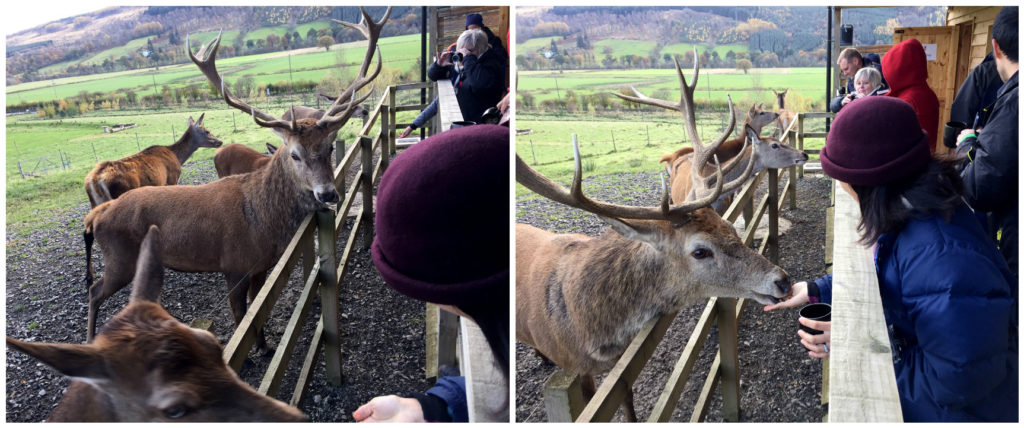
We fed the red deer pellets of food, which they gingerly licked out of the palm of our hands. Out in the wild, a pregnant hind will sometimes forage the velvet from the stags antlers, as well as the actual fallen antlers (when the season comes). This helps them provide for the baby and keep strength up in the cold and barren months.
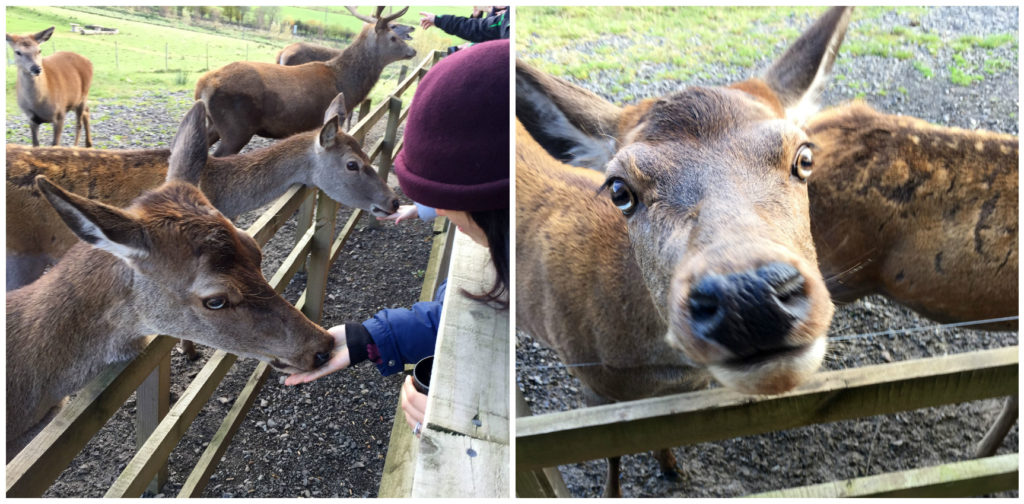
There is a pecking order among the hind as well, so sometimes they would shoo each other away and claim the goods for themselves.
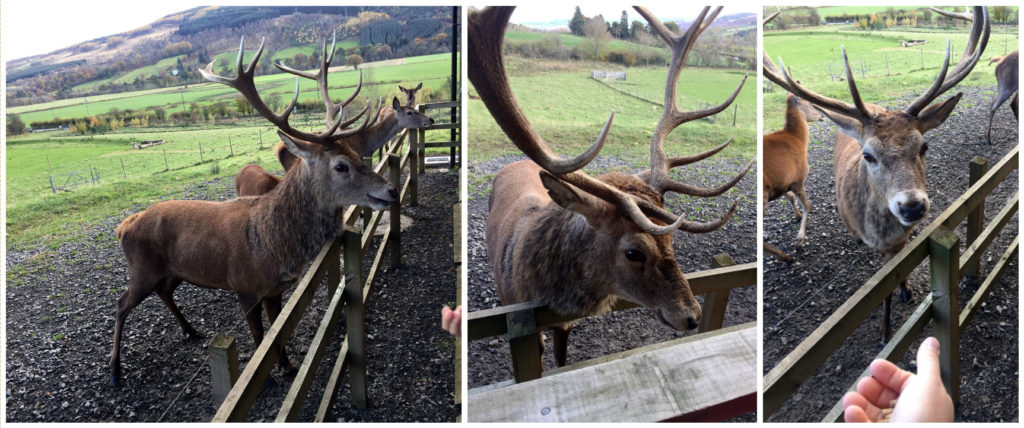
Once the feeding was over, it was back to business. As in watching over the herd.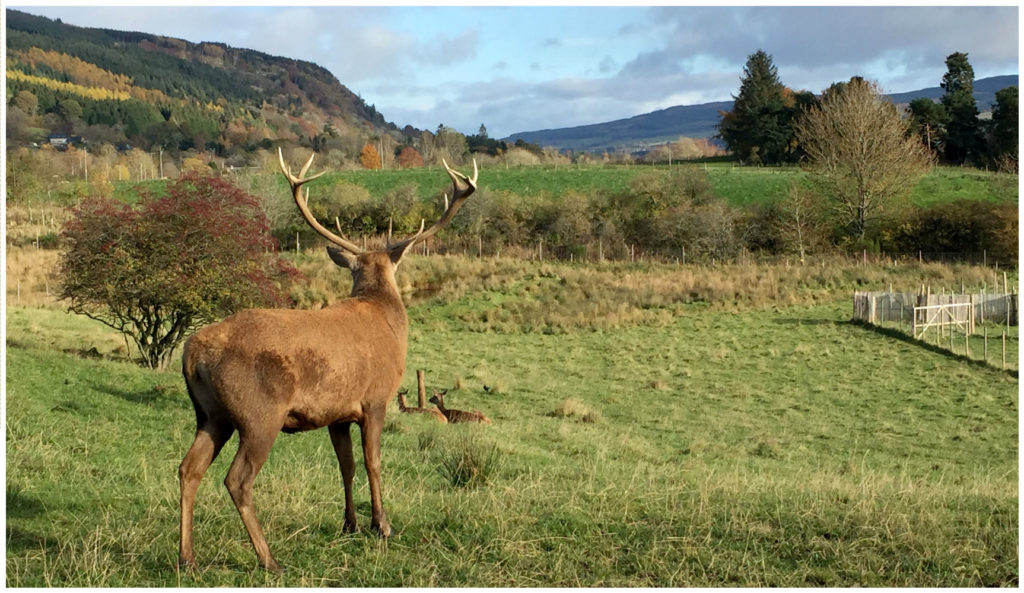
We also met a lovely barn owl and watched as she fed on (already dead) mice. She was a rescue that came because the original owners decided they couldn’t keep her anymore. Scottish law forbids her to be let back into the wild once domesticated, so the Red Deer Centre took her in. Her eyes take up so much room, there’s not much room for anything else. In other words, she’s got a tiny brain. Like all barn owls, she’s got one ear above one eye, and one below the other. So when she’s really listening for something you can see her expression change, our guide told us.
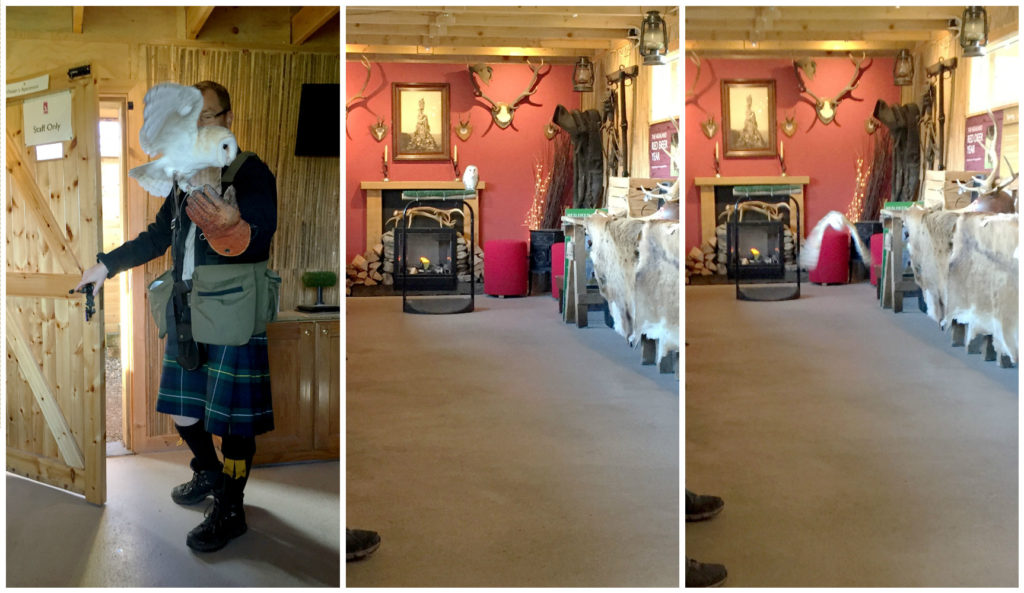
On our way back we said hello to some shetland ponies by the church. They walked right up to us for some lovin’ as soon as we stopped at the fence.
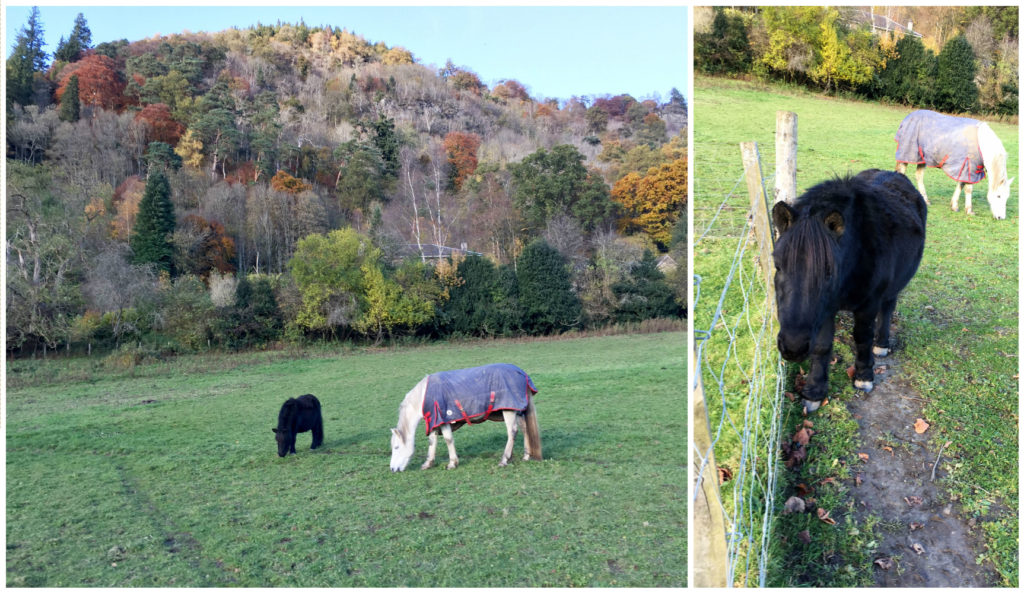
Click for the most adorable wiggle.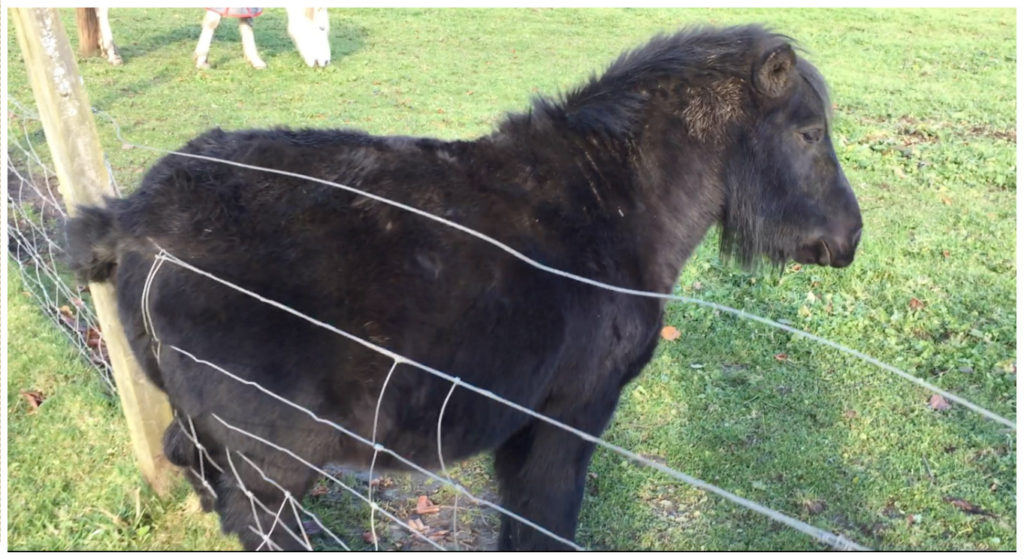
A happy walk later, rain included, we get back to Aberfeldy town center with just enough time to explore the small birk, of the famous Birks o’ Aberfeldy.
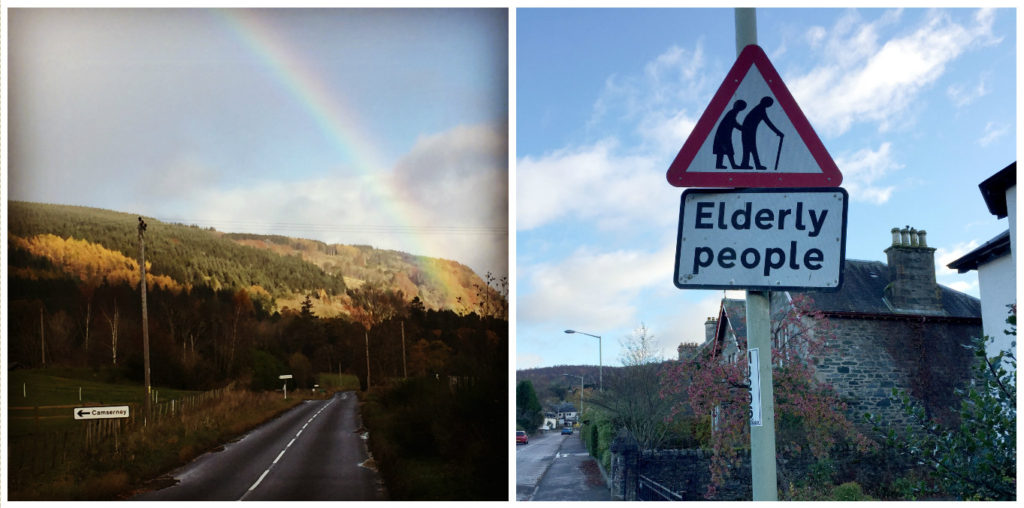
I am still a little cloudy on the definition of a birk, but we saw these beautiful waterways weaving through rocks and trees (in the autumn color leaves!).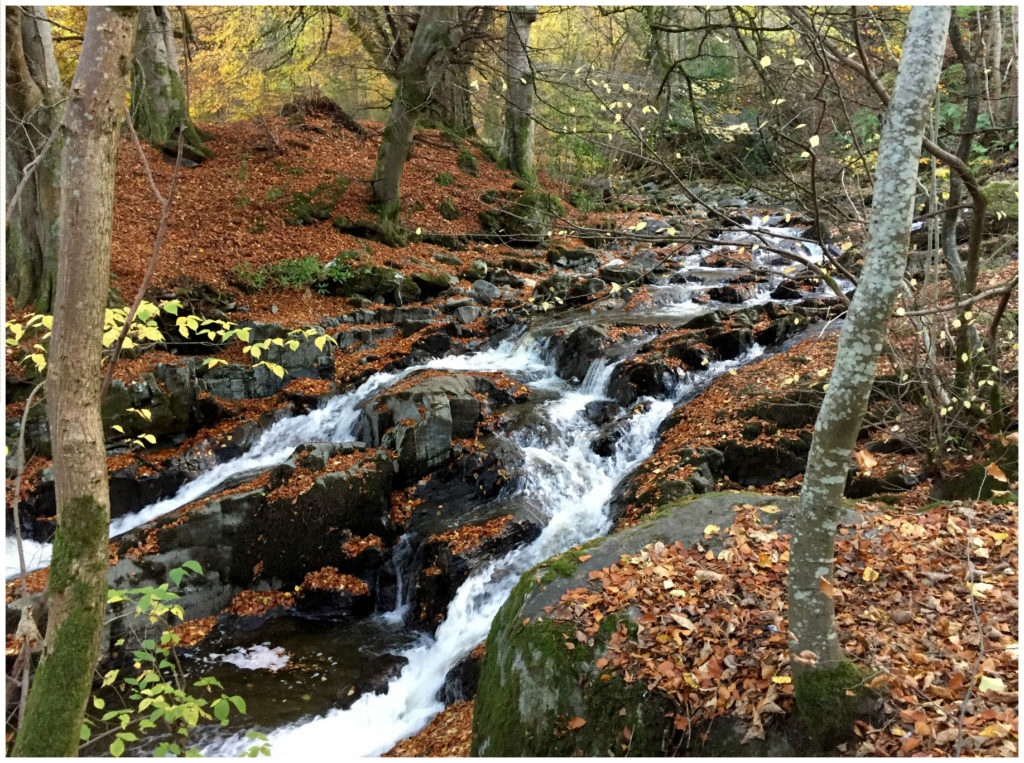
Merriam Webster noted that it’s mainly of use in Scotland (of course!), and has relation to “birch” as in the type of tree. But at the Birks o’ Aberfeldy, we’re pretty sure they refer to the waterways.
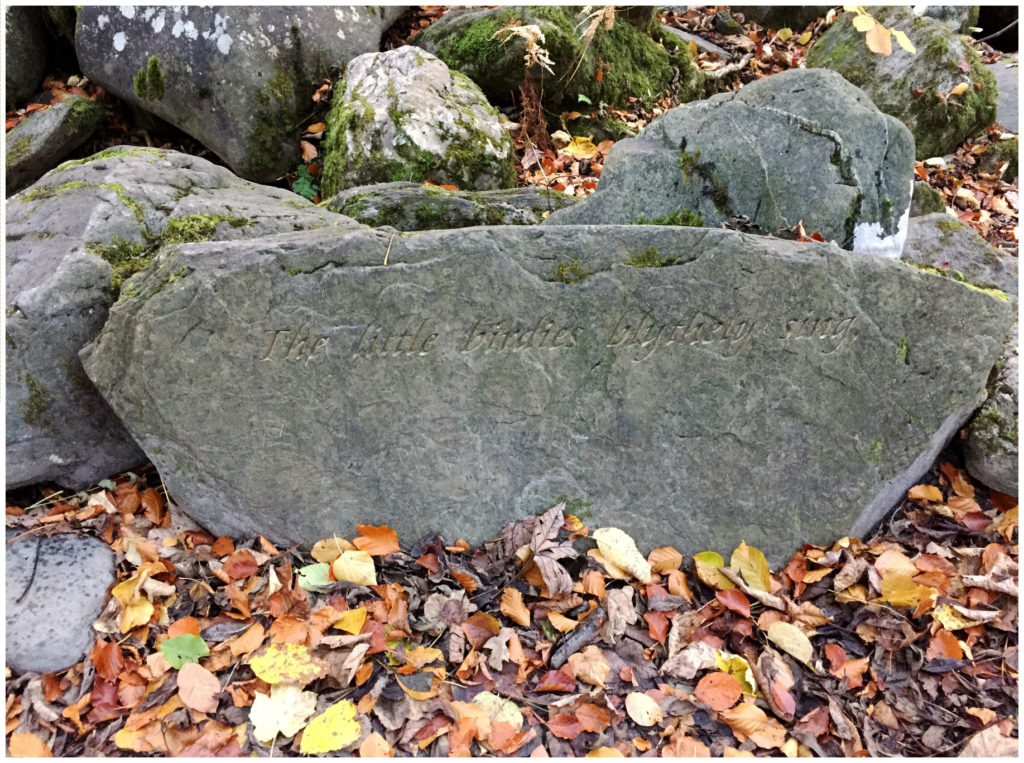
Absolutely stunning!
Here’s a little vid of the soothing water for your relaxation 🙂
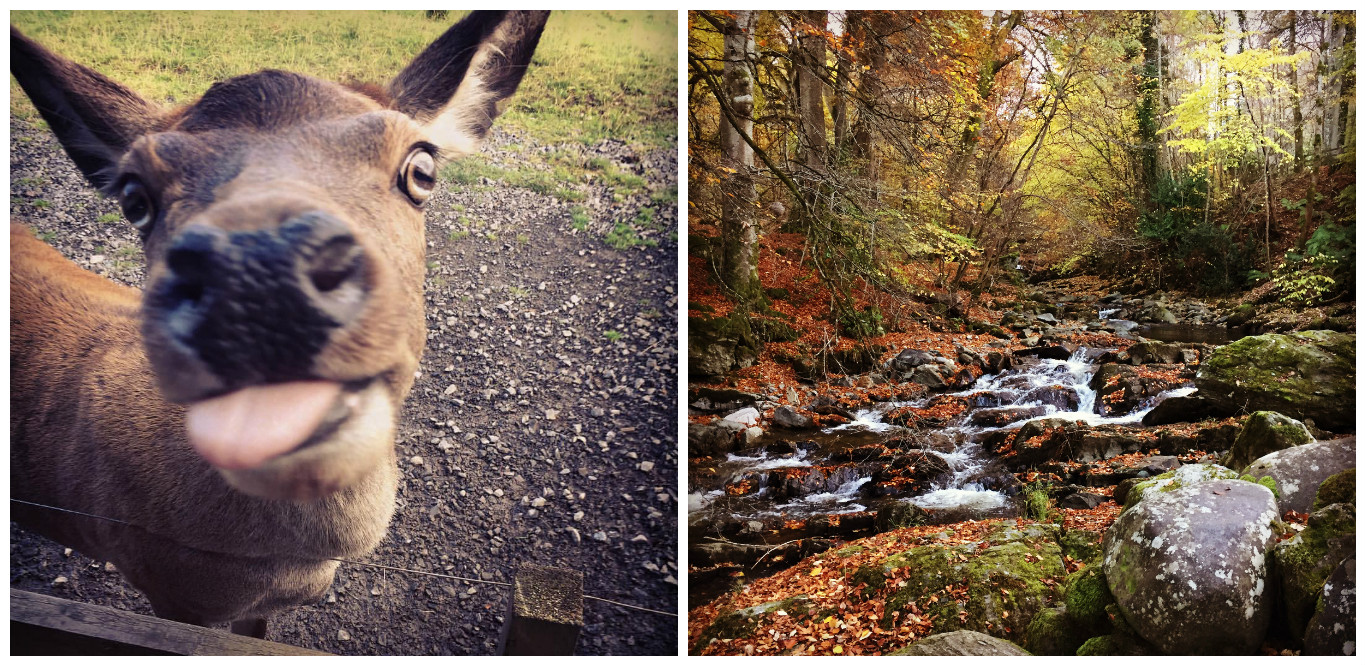
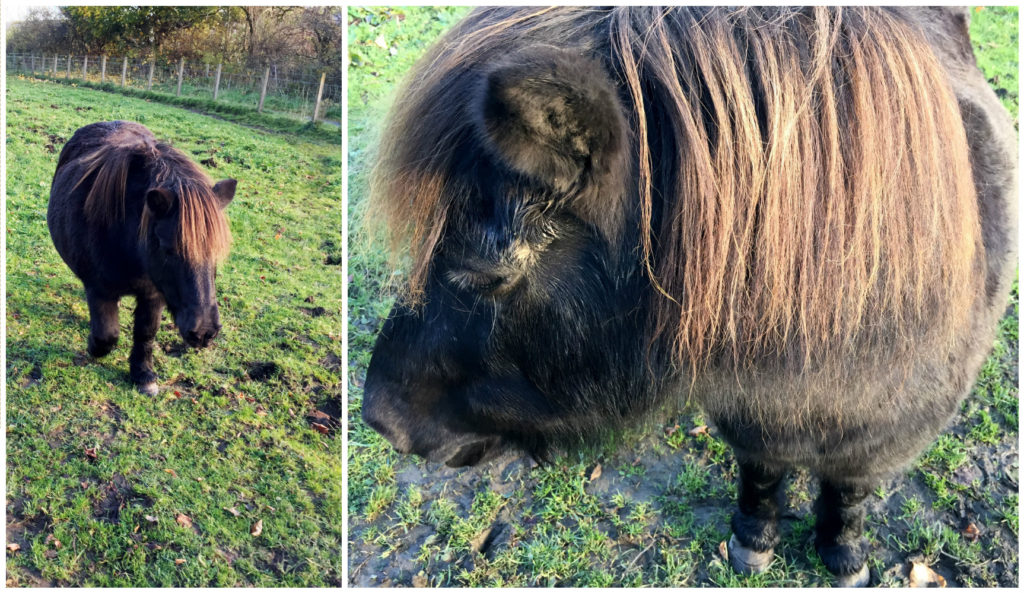
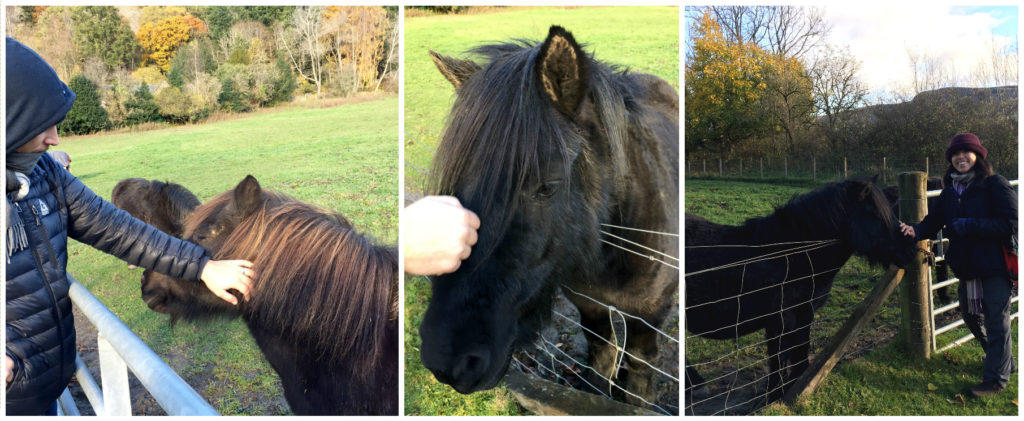
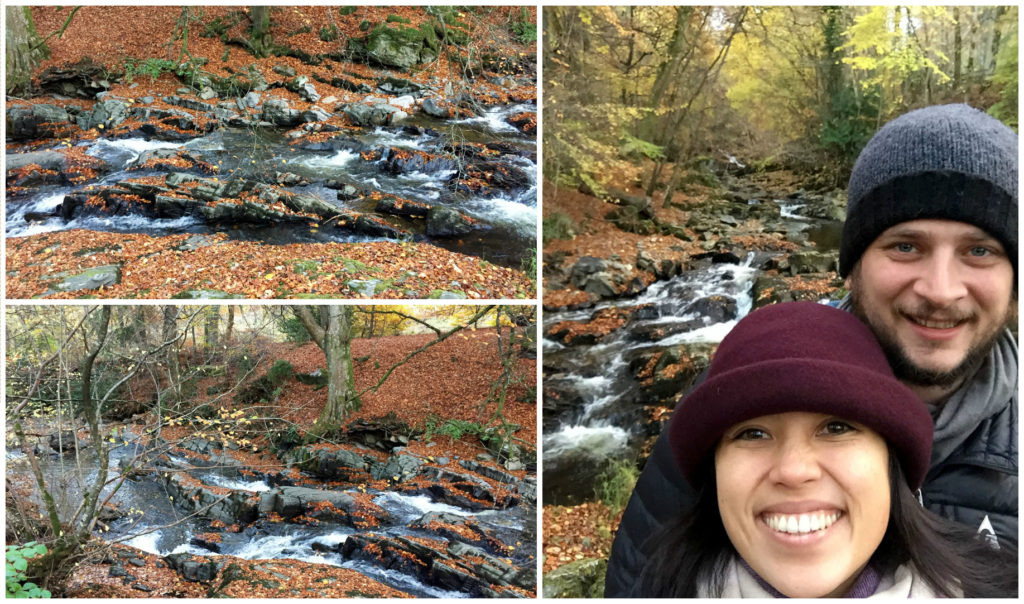
love the pictures it looks stunning. love the little video clips. thank you for taking me on your journey
<3
Really beautiful. That wiggle looks like a little scratch of some sort! Isn’t birk just birch trees? That is what I have found in a few dictionaries. Thanks for keeping us updated and sharing your adventures with us. It is just lovely.
Yes, poor pony looked like he was itching.
That’s what I found for birk online as well. But it’s used by the locals to describe the water. The first woman told us they were sorta like waterfalls, but not really waterfalls (which we can vouch for). They’re also categorized as “little” (pictured) and “big” though I can’t remember whether they were “little birk” or “little birks”
Loving learning local language/idioms!
New posts coming 😉
Where to next? And when?